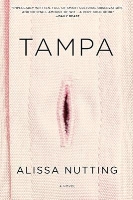5 stars. This story begins in a tiny Greek village, many years ago. Our narrator describes in great detail how his grandparents came to be, then how his parents came to be, and finally tells the story of his own new romance in modern day Berlin. Throughout, he paints intimate portraits of his family, his upbringing, his confused sexuality, and various encounters with interesting people in between. The conclusion is inevitable, but these episodes prove captivating. No surprise plot twist here.
I was in the mood for something challenging, unique, and contemplative, and Middlesex is definitely all of those things. It's sprawling - easily an epic. It sweeps across time and space, touching both universal big themes (like sex and culture and religion) and universal small themes (like one's tangled, complex feelings towards his or her parents, and the frequently-written-about challenge of becoming an adult). Middlesex approaches these universal themes, both big and small, with an unflinchingly honest voice. Things considered taboo or bothersome or controversial are spoken about with no hint of shame or apology, only curiosity and honesty. In fact, this might be my favorite part about this book. The reader is not catered to in any way.
As an example, I'll point to one of the most prevalent threads in the story: incest. If this were amateur hour, following the event in question, the reader might encounter entire chapters dedicated to lamentations about the implications and the awful consequences of the act. The offenders might die tragic, torturous deaths as punishment for their crime. Supporting characters would overexplain their discomfort and place line after line under their disapproval. "It's a bomb!" says the spy on my TV screen, while the camera pans directly on what is very obviously and without a doubt, a bomb.
But Cal - our unrelenting storyteller - offers no condemnation of his own. He says nothing like, "In case you don't know, reader, this is wrong. Don't commit incest. It's sinful and disgusting." Instead, he trusts that the reader is already aware. He trusts that the reader will understand that the consequences are right there, embedded in the pages and part of his biological identity. He doesn't have to write INCEST = BAD to make the story any more complete.
In fact, Cal doesn't even try to emphasize its wrongness; he doesn't even feel the need to embed the lesson in subtext. There's nothing but maybe a faint whiff of side-eye instead of fiery condemnation. He seems to be more interested in the details - the hows, the whys, the circumstances, etc. The author is not worried that some parent, convinced that the depiction of incest automatically equates approval, will slap a banned sticker on the cover of his book. Cal knows who he is and accepts why he was born that way. He just ... tells the story. It's super refreshing!
And it's fantastic. It's fantastic, thought-provoking, complex, well-written, troublesome, enlightening, heartbreaking, funny, and more.
Although...
I have to admit that I found the length cumbersome. And occasionally - very occasionally - I could feel the author patting himself on the back for choosing such a complicated, questionable subject. I could feel his self-satisfaction as he described most intimately the scientific ins and outs of sexual biology and psychology; could very briefly glance his smug smile as he "went there." I in no way want to discourage any depiction of incestual or hermaphroditic content, nor will I ever put up my nose at the idea of something different or controversial. I simply question the author's motives, that's all. It's a difficult thing to explain, but it was slightly off-putting, for me. Maybe he was just interested in the topic. Maybe he wanted to be provocative. Maybe both?
Bottom line: Cal's story is unusual but important. My mind felt full and satisfied after reading it.
Middlesex on: Amazon | Goodreads










